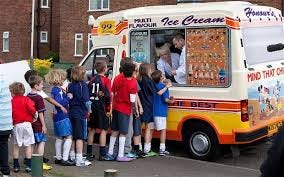
Blog by Jennie Fairclough, Senior Tutor, Holy Cross Bury
With 19 years experience of teaching students aged between 1619, I can say with the greatest confidence that after submitting coursework and sitting the dreaded final exams, there is no task a student would rather engage in less than careers research or consideration of future employment. Of course, theres always the exception to the rule. Theres always the student whose life ambition is to be a doctor or an architect or an accountant. I once read the most curious of personal statements that claimed that the teenager in question always knew she wanted to be a pharmacist (as early as in the womb). The mind boggles.

But what about the majority? What about the 2/3rds of the class whose eyes glaze over when asked to consider their future? Those who nonchalantly shrug with an am I bovverd? disdain to the suggestion of employment, apprenticeships or universities. Inevitably, theres the panickers. The but I just dont know what to doers who swiftly make appointments with a Careers advisor only to leave dissatisfied, because they werent told what to do with the rest of their life.

The problem is the decision belongs to the student. Not their parent(s). Not their teacher. Not their friends. But the one person, that education has attempted to serve since nursery. Its all been building to the day when a fabled bolt of lightning hits them and they experience an epiphany. They turn to the world and declare, Ive decided, Im going to be a [insert career].
Rarely does this happen.
It makes me wonder how many of these students have been brought up in a household similar to mine? With 4 children, my mum would often stand at the ice-cream van virtuously extolling (in a volume considerably louder than usual), never give a child choice??it only causes problems. At the time I agreed with her. There was always a long queue as some child or other was throwing a tantrum because they couldnt choose between a strawberry

Cornetto or a Nobbly-bobbly. For us, it was a vanilla ice-cream or nothing.
Im not sure however that this has left me in the best position for making decisions. Even now, I shrink from the barista who wants to supersize my skinny latte or add an extra cinnamon shot. Or the fear of ordering a dress on-line to be faced with selecting from the multitude of delivery options. And buying a sandwich should come with a hazard warning sign. The reality is??like many of my students??I just dont like choice. I actually quite like to be told what to do.
So, to return to the student who makes choices throughout his/her educational journey, designed to narrow options and guide said student seamlessly towards a future career. Youve always been creative??choose Art??have you considered design? You have an aptitude for language??choose French??what about translation? Invariably, students regret these early teen choices and realise (at the wise old age of 16 or 18) they dont have the perfect portfolio for a desired career route further down the line. Theyve made a mistake. The system has failed. This is where career apathy sets in. They know they need to make a decision but they try to put it off in the same way as cleaning their room or meeting a deadline. For many, they would love it if someone would just tell them what to do. Even better??do it for them.
For all of these reasons, active careers research and profile building is essential. Research that is driven by the student and is embedded throughout their educational journey, not just a panicked add on at the end of year 11 or year 13 as they are pushed out of the school gates into the big wide world. We understand the problem??theres a lot of students in a cohort??how can a careers team ever deliver tailored career guidance to them all? Students need to be taught how to make decisions and need to be taught how to create and craft profiles (they know how to do it??have a look at Instagram or Facebook). Profiles that are fit for a commercial workplace, for a future employer to view.
Kloodle does this.

Kloodle helps pupils and students create a profile that can kick-start their career. Its designed to carefully guide teenagers through the process of identifying their strengths and limitations and in doing so, students naturally reflect on their progress and character. As their skills wheel builds (or remains empty!), they can identify gaps in their profile and seek opportunities to tag the elusive skill area. If this practice is embedded in education early enough, then students are made aware of their skill-set and where the gaps lie. They are taught how to be robust and how to make decisions along the way. Of course, students wont suddenly chorus their approval of these steps and instantly celebrate this practice??they will doubtlessly moan and initially reject the idea because as an educator, you are forcing them to face decisions that they dont like (remember, theyve been told theyre having vanilla or nothing), so building a profile and having to write about themselves will be met with fear. Even worse, when faced with a blank profile card, it seems like a lot of hard work! But as they learn how to follow companies and engage with employment opportunities, they will see the benefit of their toil and realise the supportive measures in place as they face their future equipped with knowledge and confidence in seeking a job, placement or university.
